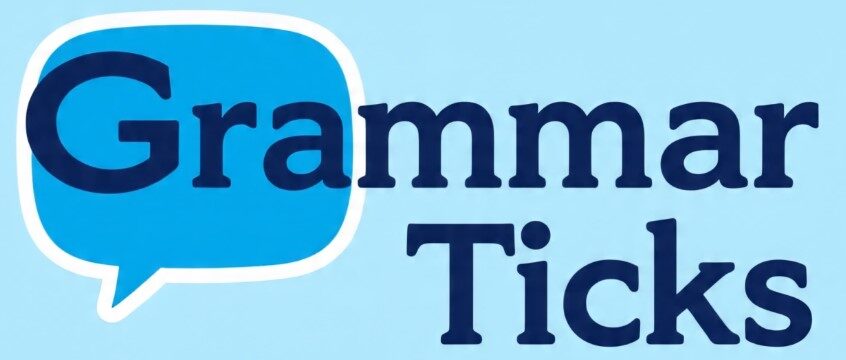The confusion surrounding comming and coming often perplexes many English speakers. Understanding the difference is crucial for effective communication. In this article, we’ll explore the correct usage of these terms, shedding light on common misspelled words and providing helpful tips to enhance your spelling skills.
Whether you’re writing a formal email or engaging in casual conversation, using the right form can make a significant impact. By clarifying the nuances between comming and coming, you’ll boost your confidence in grammar and spelling, ensuring that your message comes across clearly. Let’s dive into the details and help you master this often-confused pair.
Why “Coming” Is The Correct Spelling
The word “coming” is the present participle of the verb “come.” It is used in various contexts, including as a part of continuous tenses. Understanding English spelling rules can help clarify why “coming” is the accepted form while “comming” is not recognized in standard usage.
Historical Context
The evolution of the word “come” dates back to Old English, where it appeared as “cuman.” Over the centuries, as the English language developed, so did the spelling conventions. The addition of the “-ing” suffix remains consistent with how other verbs are conjugated in the present participle form.
Example Scenario
Imagine you are planning a party. You might say, “The guests are coming at 6 PM.” Here, “coming” indicates the action of arriving, clearly illustrating the use of the present participle.
Understanding “Coming” in Grammar
In grammar, “coming” serves primarily as a verb form. It can function as a gerund, a present participle, or even as part of a larger verb phrase. Understanding its versatility is key to mastering its usage.
Usage in Different Contexts
- As a Verb: “I am coming to the meeting.”
- As a Gerund: “Coming to terms with change can be challenging.”
- As Part of Continuous Tenses:
- Present Continuous: “She is coming to the party.”
- Past Continuous: “They were coming home when it started to rain.”
Example Scenario
Consider a situation where you are discussing plans. You could say, “I look forward to coming to your wedding.” This highlights the noun usage of “coming” as an action you anticipate.
The Misconception of “Comming”
Although “comming” often appears in written language, it is a common error. This misspelling likely stems from the phonetic nature of English, where pronunciation does not always align with spelling.
Why This Error Occurs
Many people mistakenly write “comming” because they think of other words that end with “m” before adding “-ing.” This can lead to confusion, particularly for those who are still mastering the grammar and spelling rules of English.
Impact on Communication
Using “comming” instead of “coming” can create a perception of carelessness in writing. If you were to send a professional email that stated, “I am comming to the meeting,” it could undermine your credibility.
Tips to Overcome Confusion
- Practice Regularly: Write sentences using “coming” in different contexts to reinforce your understanding.
- Use a Spell Checker: Most word processing software includes a spell checker that can catch this mistake.
- Create Flashcards: Write “coming” on one side and “comming” on the other, quizzing yourself until you feel confident.
Words That Sound Like “Comming”
Understanding words that sound similar to “comming” can help clarify the distinction. Here are a few common ones:
| Word | Definition |
| Coming | The act of arriving or approaching |
| Cumming | A colloquial term often used in specific contexts |
| Combing | The act of untangling or arranging hair |
Overview of Homophones
These words may sound alike but carry different meanings and usages. Recognizing the context is crucial to avoid confusion.
Example Scenario
In casual conversation, someone might say, “I am coming to your house,” but if they mispronounce it as “cumming,” it could lead to awkward misunderstandings.
Can “Coming” Function as a Noun?
Yes, “coming” can indeed serve as a noun. It refers to the act of arriving or an event that is anticipated.
Examples of Noun Usage
- “The coming of spring brings new life.”
- “She is excited about the coming movie release.”
Distinctions in Usage
When used as a noun, “coming” often refers to a specific event or timeframe, distinguishing it from its verb form. This versatility makes it an essential component of the English lexicon.
Example Scenario
During a discussion about future events, you might say, “The coming week will be busy.” This indicates the upcoming days, showcasing “coming” as a noun.
The Opposite of “Coming”
The antonyms of “coming” include words like “going” and “leaving.” Understanding these opposites is vital for expressing transitions in movement or time.
Examples of Antonyms
- Going: “I am going to the store.”
- Leaving: “They are leaving for vacation tomorrow.”
Contextual Usage
Using antonyms allows for clearer communication, especially when discussing plans or actions. Here’s how you might express the opposite of “coming”: “Instead of coming to the party, I am going to a concert.”
Commonly Misspelled Words in English
English is notorious for its commonly misspelled words, and “coming” often finds itself on that list. Here are a few other troublemakers:
| Word | Correct Spelling | Common Mistake |
| Definitely | Definitely | Definately |
| Separate | Separate | Seperate |
| Occurrence | Occurrence | Occurence |
Tips for Recognizing Misspellings
- Familiarize Yourself: Regularly read and write to become accustomed to correct spellings.
- Use Reference Materials: Keep a dictionary or online resource handy for quick checks.
Tips for Improving Your Spelling Skills
Improving your spelling can enhance your overall communication skills. Here are some practical tips:
Regular Practice
Consistent practice is key. Write daily, focusing on words that challenge you. Over time, you’ll notice improvement in your spelling.
Utilize Technology
Leverage spell checkers and grammar tools available in most word processors. These can catch errors before you publish or send your work.
Engage with Language
Read widely, as exposure to well-written material can reinforce correct spelling in your mind. Pay attention to how words are spelled in context.
Example Scenario
If you find yourself frequently misspelling “coming,” create a sentence like, “I am coming over later.” Repetition will help solidify the correct form in your memory.
Final Words
In conclusion, understanding the difference between comming and coming is essential for clear communication. Remember, “coming” is the correct spelling and is used in various contexts. By practicing regularly and using tools like spell checkers, you can avoid common mistakes.
Pay attention to your writing, and don’t hesitate to look up words you find tricky. With these tips, you’ll improve your spelling skills and feel more confident in your use of the English language. Mastering comming or coming will enhance your overall communication.
FAQs
What are the origins of the word “coming”?
“Coming” originates from the Old English “cuman,” which means to approach or arrive. Understanding its roots can help clarify its correct spelling.
How can knowing the correct spelling enhance your writing?
Correct spelling conveys professionalism and attention to detail, improving clarity and making your writing more effective.
Are there regional variations in spelling or usage?
While “coming” is universally accepted, regional dialects may influence pronunciation, but the spelling remains consistent across English varieties.

